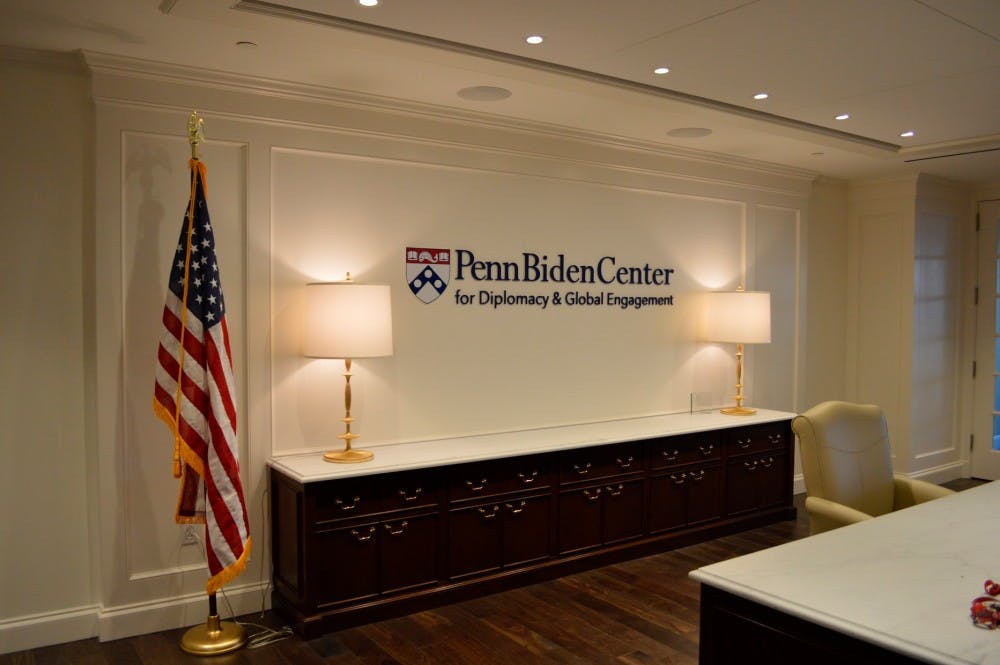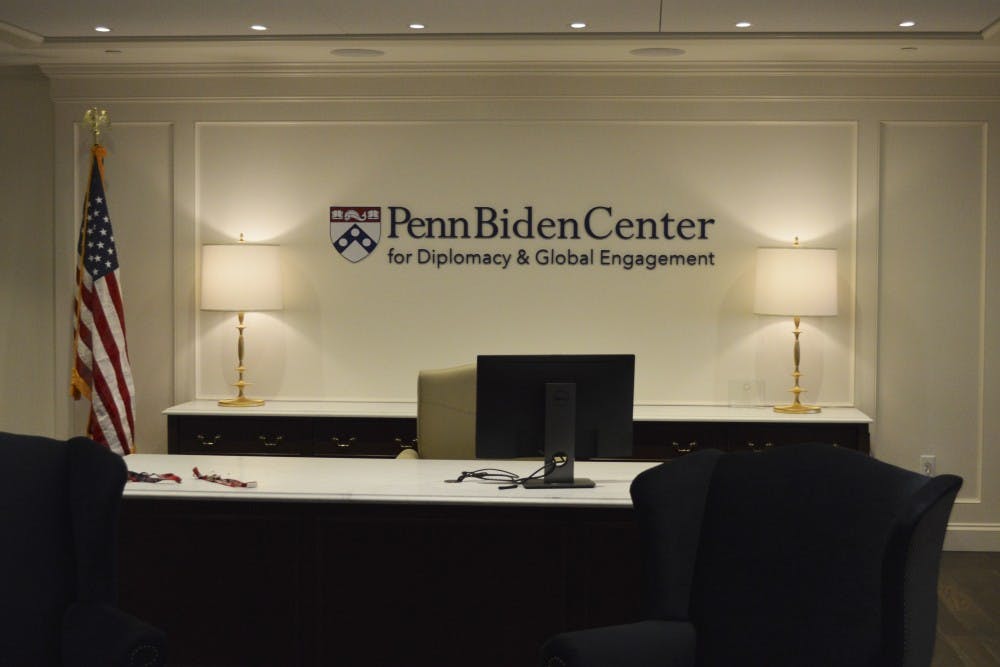
Almost exactly a year after former Vice President Joe Biden was named a Penn professor, the Washington, D.C.-based Penn Biden Center for Diplomacy and Global Engagement will celebrate its official inauguration on Feb. 8.
The Center's "soft opening" was in March 2017, Director of Communications Carlyn Reichel said, and since then Biden has led its work in diplomacy, national security, and foreign policy.
Located in a suite within a larger office building, the Center has already been involved in several projects concerning foreign policy. Reichel noted that Michael Carpenter, the senior director of the Center and a former aide of Biden, had recently written a 10-page essay on Eastern Europe as part of his work in the center.
She added that Biden uses the Center as his main office when he is in D.C.
According to Reichel, one of the major goals of the center is bringing Biden to Penn.

The exact nature of Biden’s professorship at Penn, however, has been a source of confusion for some students and professors. Many students had thought that Biden would be teaching courses at the University, but in February, Biden spokesperson Kate Bedingfield confirmed he would not be instructing classes.
Over the past year, Biden has appeared at several events on campus, including a public conversation with Penn President Amy Gutmann in March 2017. Many Penn students were moved by his talk in November 2017 about his new book “Promise Me, Dad,” which included an exploration of his grief following the death of his son, Beau.
“As a person who wants to enter politics, it was incredibly inspiring to hear about how he thought that working in politics was one of the most honorable things a person could do,” College freshman Rachel Steinig said after attending the book talk.
On Feb. 15, Biden will be coming again to Penn to take part in the 2018 Silfen Forum at Penn to discuss asylum seekers, refugees, and immigration policy.
“[Biden] will certainly be on campus several more times before the end of the semester,” Reichel said. However, she added that it’s policy not to reveal the details of Biden’s events in advance because plans often change.
While the Center works to give Penn students access to conversations with world leaders, Reichel said that the Center benefits from the intellectual discussions and research provided by Penn faculty and the Perry World House. She added that she believes this collaboration with "Penn's academic resources" sets the Center apart from “other D.C. think tanks.”

“Sometimes there’s a policy divide between the policy practitioners and the academic community,” Reichel said. “We think by having the Penn community as a resource feeding into the work we’re doing, we’re going to form a really critical function here in terms of the policy-making role.”
Several Penn undergraduates have had the opportunities to take on semester-long internships at the Center. In addition to assisting in the day-to-day operations of running an office, interns take part in planning social media strategy and conduct research on foreign policy topics such as Eastern Europe and Russia, Reichel said.
She added that for now, these internships are open to Penn students only and not to those from other universities.
College and Engineering sophomore Kavin Jagnarain, who is part of the Penn in Washington internship program in Washington, D.C., said he was able to meet Biden when he attended a conference that the former vice president held for student interns last week at the Center.
Jagnarain added that he will be helping out at the Center on Fridays starting next week because his internship at Sen. Chuck Schumer's (D-N.Y.) office is only four days a week.
Reichel said the official opening of the Center on Feb. 8. will feature a small program between journalist Andrea Mitchell and Joe Biden, and a reception. The reception will be attended by foreign policy thinkers in the D.C. community, Biden’s former collaborators on policy, members of Perry World House, and Penn faculty.
The Daily Pennsylvanian is an independent, student-run newspaper. Please consider making a donation to support the coverage that shapes the University. Your generosity ensures a future of strong journalism at Penn.
Donate







